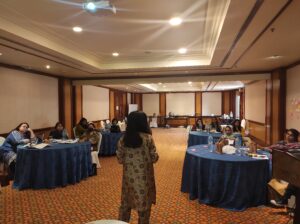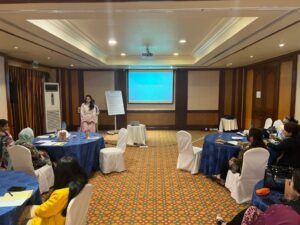
Islamabad: Media Matters for Democracy organised a series of capacity building sessions for members of the Women in Media Alliance (WIMA) to improve reporting on Gender Based Violence (GBV). The training sessions aimed to equip women journalists with the necessary skills and knowledge to effectively report on gender-related issues and contribute to a more inclusive media landscape.
The training sessions, held in Islamabad and Karachi, brought together a total of 30 participants, with 17 engaged in Islamabad and 13 in Karachi. The session in Karachi was held from March 9 to 11, 2022, while the session in Islamabad was held from March 17 to 19, 2022.
The selection process involved a competitive registration form, ensuring the participation of dedicated and passionate individuals committed to advancing gender equality through media.
The comprehensive training covered various crucial aspects, including understanding and identifying gaps in current media coverage of gender-based issues. Participants gained a deeper understanding of the human rights context and were equipped to report on gender law and policies in Pakistan. Through interactive sessions, they explored terminology, navigated jurisdictions, and learned how to engender public dialogue to make gender law and policy more effective.

The trainers shed light on the understanding and combating of online abuse, and provided insights into human rights frameworks, enabling participants to report on gender-related issues within the broader framework of human rights. They were informed of ways to ensure their digital security to empower them to navigate the digital landscape safely while reporting on sensitive topics.
Key highlights of the training included sessions on reading First Information Report (FIR), ensuring participants could comprehend its structure and contents accurately. Participants also mapped out different state bodies and their respective functions related to gender-based issues. State bodies such as the Women Protection Cell, Sindh/Punjab Commission on the Status of Women, Federal Ombudsman for protection against Harassment at Workplace, and NADRA were thoroughly explored. The training emphasised the importance of reliable data sources and the ability to discern between good and bad sources. Participants gained valuable insights into data-driven reporting on gender-based issues, enabling them to deliver accurate and impactful stories.
